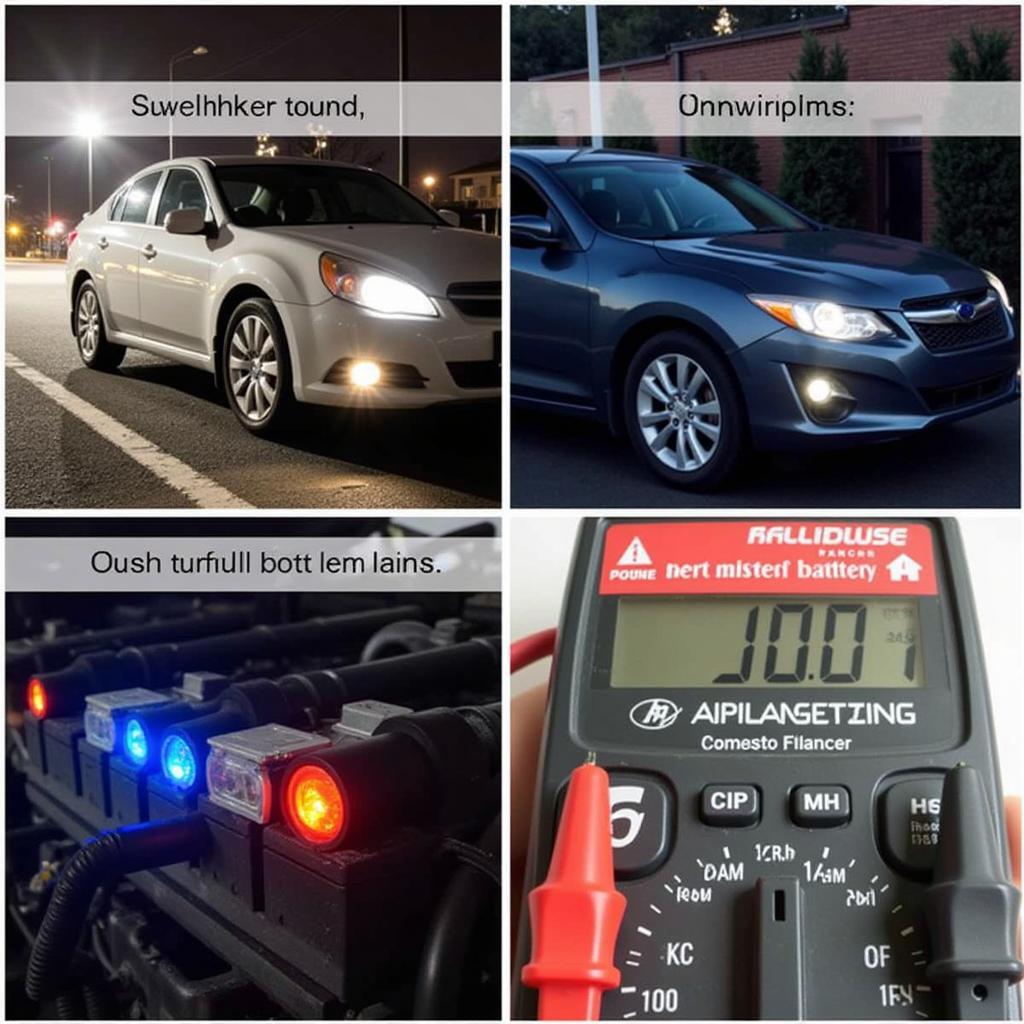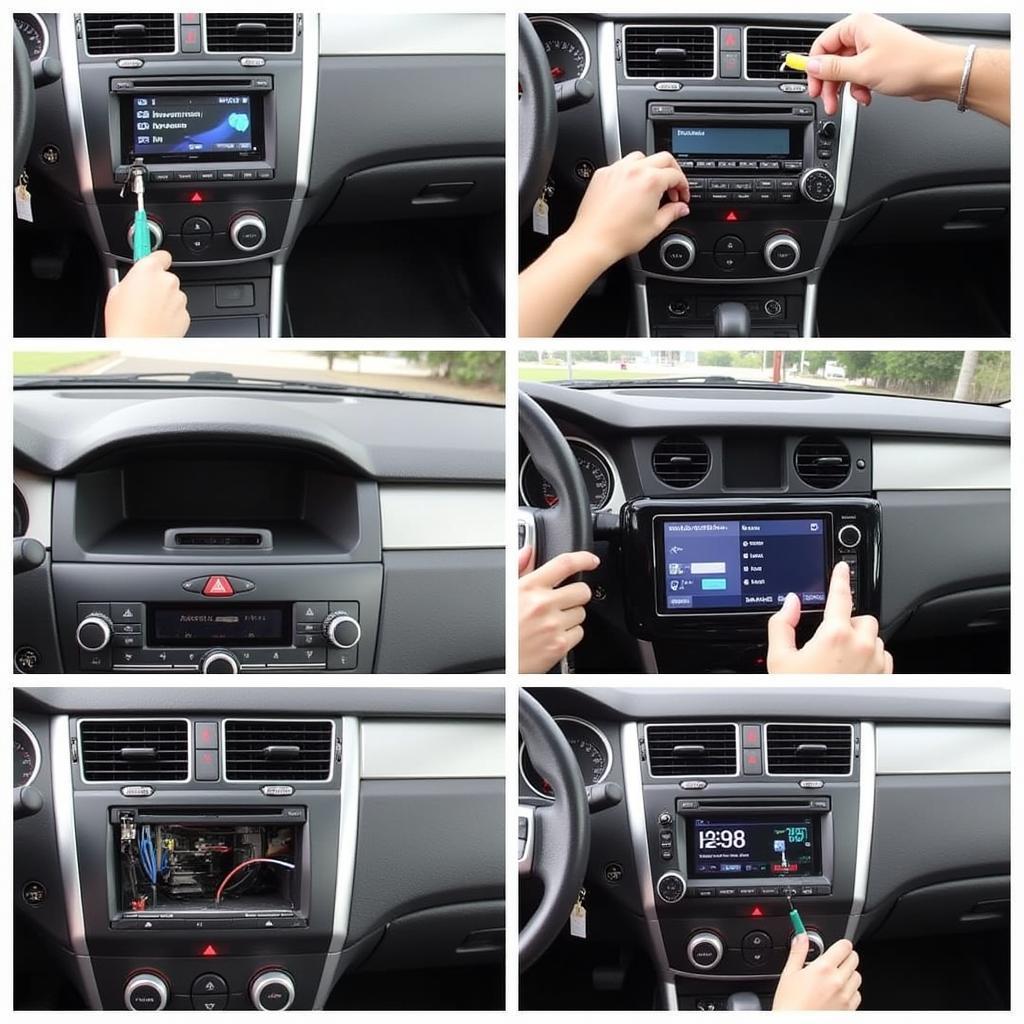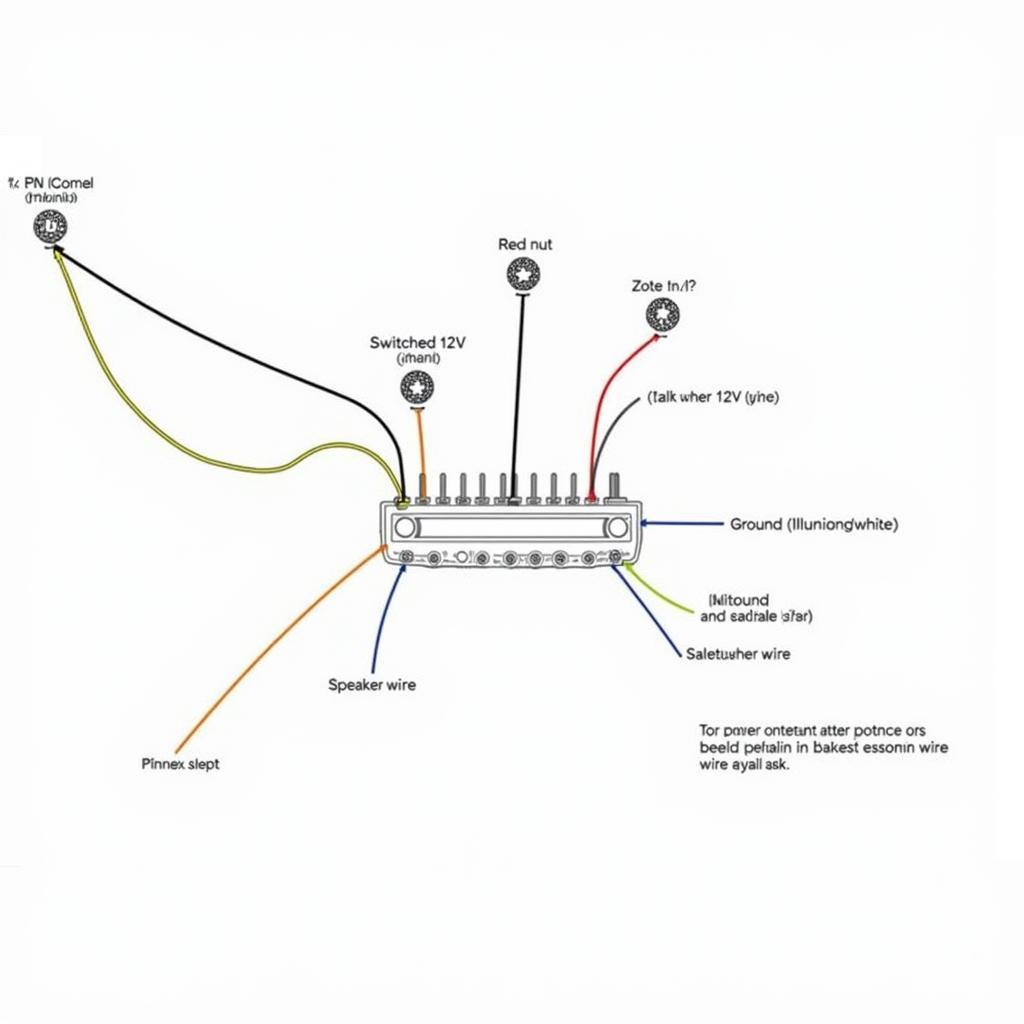A dead car battery is a frustrating experience, leaving you stranded and scrambling for a jump start. Understanding the causes of car battery discharge is the first step towards preventing future occurrences and ensuring reliable vehicle operation. This comprehensive guide covers everything from diagnosing the problem to implementing preventative measures and even exploring remote software solutions for certain car battery discharge issues. Learn how to troubleshoot your car battery discharge problems and get back on the road.
 Car Battery Discharge Symptoms
Car Battery Discharge Symptoms
Common Causes of Car Battery Discharge
A car battery discharge can stem from various factors, some obvious and others more subtle. Identifying the root cause is crucial for effective troubleshooting. Here’s a breakdown of common culprits:
- Leaving lights or accessories on: This is a classic mistake. Headlights, interior lights, and even the radio can drain your battery if left on for extended periods while the engine is off.
- Parasitic drain: Even when your car is off, certain systems like the clock, alarm system, and computer modules continue to draw a small amount of power. A faulty component or wiring issue can cause excessive drain, leading to a dead battery.
- Extreme temperatures: Both extreme heat and cold can significantly impact battery performance. Heat can accelerate the chemical reactions within the battery, leading to faster discharge. Cold temperatures can reduce the battery’s capacity to hold a charge.
- Old or faulty battery: Like any other component, car batteries have a limited lifespan. Over time, their ability to hold a charge diminishes. A faulty battery can also discharge rapidly, even if it’s relatively new.
- Alternator problems: The alternator recharges the battery while the engine is running. A malfunctioning alternator won’t charge the battery effectively, eventually leading to a complete discharge.
- Corroded battery terminals: Corrosion on the battery terminals can disrupt the flow of electricity, hindering charging and discharging.
Do you struggle with finding the best radio frequency for car bluetooth? It might be related to battery issues.
Diagnosing a Car Battery Discharge
Determining the cause of your car battery discharge often requires some detective work. Here’s a step-by-step guide to help you diagnose the problem:
- Check the obvious: Start by ensuring all lights and accessories are turned off.
- Visual inspection: Look for any signs of physical damage to the battery, such as cracks or leaks. Also, check for corrosion on the battery terminals.
- Battery voltage test: Use a multimeter to measure the battery voltage. A fully charged battery should read around 12.6 volts. A reading below 12.2 volts indicates a discharged battery.
- Parasitic drain test: With the engine off and all accessories turned off, disconnect the negative battery cable and connect a multimeter in series between the cable and the battery terminal. A reading of more than 50 milliamps suggests a parasitic drain.
Solutions and Preventative Measures
Once you’ve identified the cause of your car battery discharge, you can take steps to fix the problem and prevent it from happening again. Here are some solutions and preventative measures:
- Jump-starting the car: If your battery is completely dead, you’ll need a jump start to get the engine running. Once the engine is running, the alternator will begin recharging the battery.
- Cleaning corroded terminals: Clean any corrosion from the battery terminals using a mixture of baking soda and water.
- Replacing the battery: If your battery is old or faulty, replacement is the best solution.
- Repairing or replacing the alternator: A faulty alternator needs to be repaired or replaced to ensure the battery is properly charged.
- Addressing parasitic drains: Identifying and fixing the source of a parasitic drain can be challenging, but it’s essential for preventing future battery discharge problems.
Sometimes, even seemingly unrelated issues, like finding the appropriate car radio frequency bluetooth, can highlight underlying electrical problems.
Remote Software Solutions
In some modern vehicles, certain battery discharge issues can be diagnosed and even resolved remotely using specialized software. These solutions, often employed by automotive technicians, allow for remote programming and software updates to address specific electronic control unit (ECU) related issues that might be contributing to battery drain.
“Remote diagnostics and programming are becoming increasingly important in modern car repair,” says automotive electrical expert, John Smith, of Smith Automotive Solutions. “These technologies allow us to address certain battery discharge issues without the customer needing to bring their vehicle to the shop.”
Conclusion
Dealing with a car battery discharge can be frustrating, but understanding the causes and implementing the appropriate solutions can help you get back on the road quickly. By adopting preventative measures and staying vigilant, you can minimize the risk of future battery problems and ensure reliable vehicle operation. Remember, addressing a car battery discharge promptly is key to avoiding further complications and maintaining your vehicle’s health.
FAQ
- How long does a car battery last? Typically, a car battery lasts between three and five years.
- Can I jump-start my car myself? Yes, you can jump-start your car using jumper cables and another vehicle with a working battery.
- What is a parasitic drain? A parasitic drain is a small but constant drain on the battery even when the car is off.
- How can I prevent my car battery from discharging? Turn off all lights and accessories when the car is off, and address any known electrical issues promptly.
- What are the signs of a bad alternator? Dim headlights, flickering dashboard lights, and a whining noise from the engine compartment can indicate a bad alternator.
- Can extreme temperatures affect my car battery? Yes, both extreme heat and cold can negatively impact battery performance and lifespan.
- Where can I find the best frequency bluetooth radio car? Online forums and expert reviews are good places to start.
Looking for the perfect bluetooth car radio frequency? Check out our guide. Also, if you need a bluetooth reciver for car radio walmart might be a good option for you.



